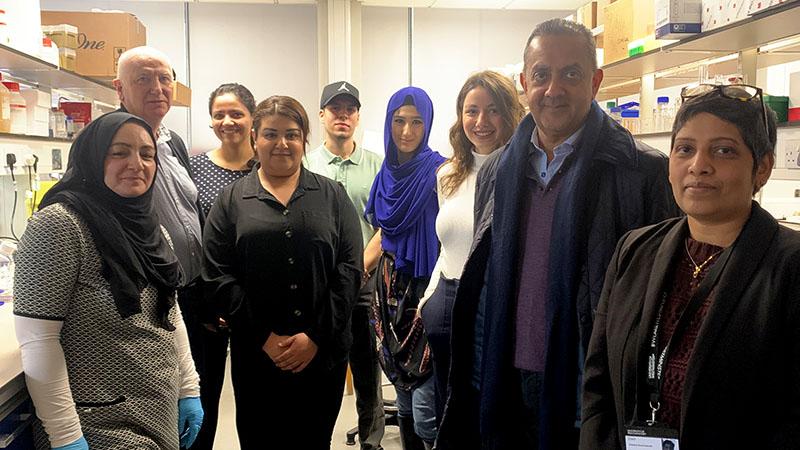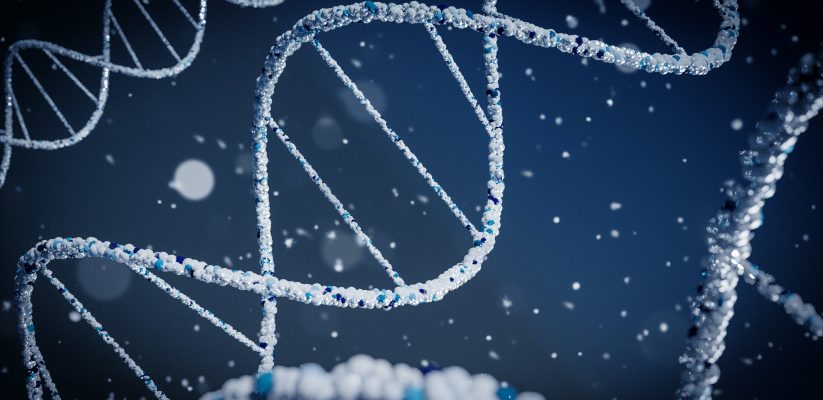For STEM students, practical research experience is a valuable addition to a CV and can be considered essential when applying for postgraduate degrees. However, two years of Covid-19 lockdowns have reduced exposure to practical laboratory training for many of our and other graduands in university training. The summer research internship programme, “Discover to Recover”, funded by philanthropic Westminster alumnus Raj Sitlani, provided three undergraduate interns placement within the Genome Engineering Laboratory at the University of Westminster and the opportunity to work alongside research scientists as they aimed to create novel CRISPR-based diagnostic platforms for infectious and non-infectious diseases.
Some of the students and their mentors shared their experiences and only had very positive things to say. Jessica Pantuczek, currently reading towards a BSc in Biomedical Sciences, said “I have recently been offered a place at an MSc course and I started feeling a bit anxious about my lab skills and the ability to run a research project independently, and the idea of spending three months preceding my new course start date surrounded by great researchers and working on my own project was fascinating. I have become confident in numerous crucial laboratory skills such as DNA extraction, Western blot, colony PCR and DNA mutagenesis. I am confident that this time and effort have opened many doors and prepared me for future opportunities and challenges at my master’s degree in Imperial college, London. Three months may seem like a short time; however, I know that it has shaped me as a scientist and encouraged me to pursue my dream. Now, at the end of the programme, I am incredibly grateful to be chosen for the first edition of this wonderful project, which will no doubt change a life of many students in the future and open them to opportunities they would never have expected.”
The programme allowed students to gain hands on experience in the lab and enabled them to develop and hone not just topic specific scientific skills, but also their transferable skills. Mariam Robakidze, currently pursuing a BSc in Biomedical Sciences, who worked closely with Dr Kalpana Surendranath said, “I felt scared and doubtful about my abilities. I was not confident enough to know if I would have been able to work fully independently. Yet, in a three-month period I have gained variety of scientific skills and life lessons which helped to unravel my strengths and weakness. As one might expect we have had failures in our experiments, yet, having an ambitious goal and working towards to achieve them, helped to develop resilience and patience to keep going. As our supervisor Dr Kalpana Surendranath told us from the very beginning of the internship, research requires to repeat the searching process. Therefore, many successful and unsuccessful experiments throughout these three months gave me tremendous number of scientific skills, confidence, and resilience. Most importantly, I now am able to trust myself and the process itself.”

Dr Kalpana Surendranath and Dr John Murphy, co-leaders of the Genome Engineering Laboratory, stated that the programme aimed to create a student community of belonging and commitment to excellence through the development of research-led student initiatives “Students trained by us in the past have achieved scholarships and positions in top universities and companies.”
Jaskirat Kaur, who is reading towards a BSc in Biochemistry, said “My journey in the Genome engineering laboratory at University of Westminster has been an incredible one. Towards the end of the internship, I also gained skills to maintain and transform human cancer cell lines. The tremendous research experience and lab practice I gained during this internship has provided me with an amazing skill set to boost my journey as a capable researcher. Owing to the training and skills I acquired in the Genome engineering laboratory, I feel so much more confident to start my MRes in Drug, Discovery and Development at Imperial College, London this year.”
As we’ve featured in past Difference Blog posts, imposter syndrome is very prevalent amongst academic trainees (editor – and academics!). Besides the specific benchtop skills for CRISPR-based scientific research, it’s inspiring to see how this internship programme empowered students with a belief that they can perform at a high level, leading to successful graduate school applications.
The School of Life Sciences annually calls for applications for Summer internship programmes from 2nd and 3rd year undergraduate students. Funded by Learned Societies such as The Physiology Society, The Biochemical Society, research awards, and philanthropic gifts, these internship programmes are a beneficial way for final year students to get a glimpse into the difference between education and employment.
To find out how you can support students or various projects at the University of Westminster, please email development@westminster.ac.uk.
- Obesity as a genotoxic environment - April 28, 2023
- Dalit History Month and its significance - April 20, 2023
- A professor is going to live in an underwater hotel for 100 days – here’s what it might do to his body - April 13, 2023
